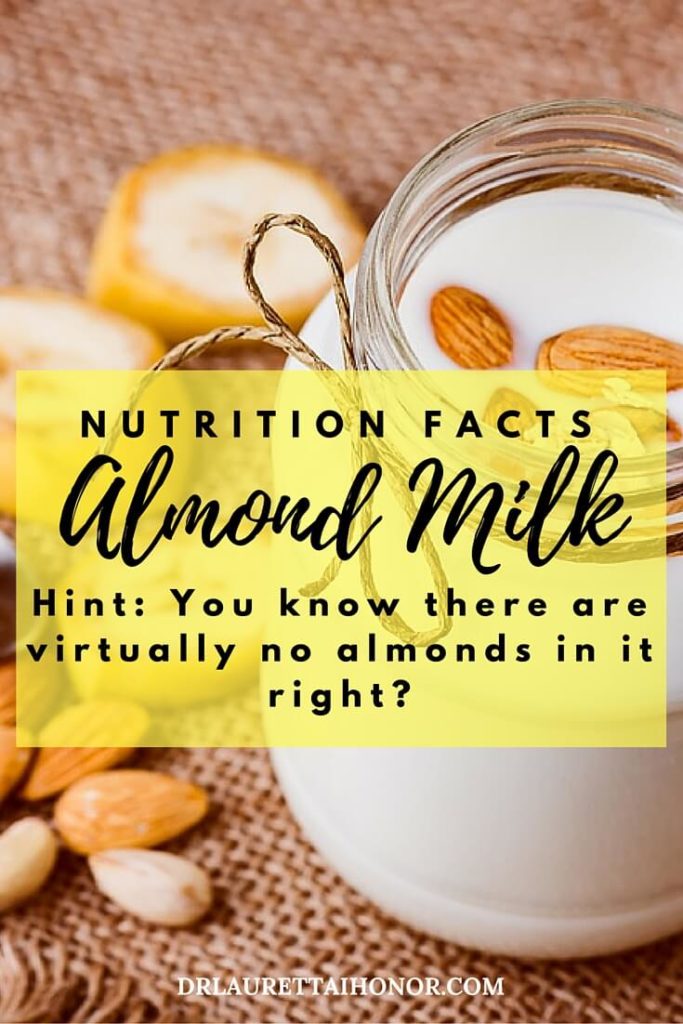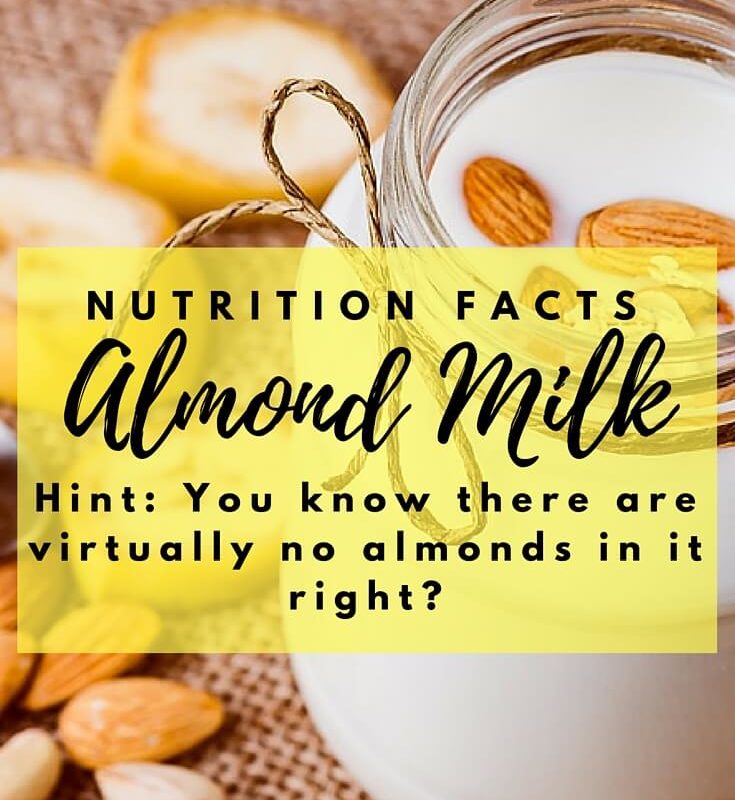
What is it?
A white liquid made from blending almonds with water, salt and other flavourings. The blended mixture is strained to remove the almond pulp and the remaining liquid is used as a dairy-free alternative to milk.
The health claims?
- Almond milk is a great milk substitute as it’s full of calcium, vitamin D, B vitamins and potassium
- It’s a high protein drink
- It is more slimming than cows’ milk as it is low calorie
- Drinking the ‘superfood’ nut milk helps keep skin healthy and glowing
The scientific facts?
- Home-made almond milk is actually devoid of many nutrients. Why? Because it’s mainly water. The bulk of the almonds used to make the drink are discarded and never make it into the drink. Let’s do the maths: one cup of almonds (around 100g), which contains around 21g of protein, 350mg of calcium, 705mg potassium, 0mg vitamin D and 0mg vitamin A, is used to make four 250ml cups of the popular nut milk. No studies have looked into exactly how much of the calcium, potassium and protein make it into the liquid and how much stays in the almond pulp that is thrown away, but it’s estimated that less than a quarter of the almonds’ nutrients seep out into the water during blending. So, that’s a grand total of a paltry 1.25g of protein, 21mg of calcium and 44mg of potassium per 250ml glass of almond milk.
- This lack of nutrients in the home-made version of the so-called health drink is the reason shop-bought versions of the dairy-free drink are usually fortified with calcium and vitamin D – to make it nutritionally similar to cows’ milk.
- Shop-bought almond milk really should be called almond-flavoured water. Why? Because almonds make up just 2% of the average carton of the popular health drink (check out the label of Alpro’s version). It’s also a health myth that the nut milk is high in protein because even though whole almonds are 20% protein, almond milk contains around 0.5g of protein per 100mls.
- Claims that the drink is great for skin health are untrue. They are based on the health benefits of actual almonds rather than the resulting milk. Yes, the nuts themselves are a good source of vitamin E, magnesium and biotin, which all help keep skin looking healthy, but very little of these nutrients end up in almond milk.
- One health claim that the nut milk does live up to is that it is lower in calories than cows’ milk. Alpro’s original almond milk comes in at just 24kcals per 100mls whereas the same volume of semi-skimmed milk has double the calories (48kcals).
Nutritional facts – Almond milk (Alpro) versus semi-skimmed cows’ milk
Trendy superfood almond milk is touted as a healthy, dairy-free alternative to milk. But is it really a better dietary choice? Let’s see how 100mls of both compare:
- Kcals: Almond milk 24 v cows’ milk 48
- Carbohydrate: Almond milk 3g v cows’ milk 4.6g
- Sugar: Almond milk 3g v cows’ milk 4.6g
- Fibre: Almond milk 0.2g v cows’ milk <0.5g
- Protein: Almond milk 0.5g v cows’ milk 3.5g
- Fat: Almond milk 1.1g v cows’ milk 1.8g
- Saturated fat: Almond milk 0.1g v cows’ milk 1.1g
- Vitamins, minerals and miscellaneous: Alpro’s version of the popular nut milk is fortified to provide 15% of the recommended daily allowance of calcium, vitamin D, E, B2 and B12. Cows’ milk has a better nutrient profile as it naturally provides double the amount of vitamin B12 and B2, and the same amount of calcium as almond milk. It’s also a good source of vitamin B1 and vitamin C and a modest source of vitamins E and A.
Winner: Cow’s milk. Although almond milk is lower in calories and slightly lower in sugar and fat, cows’ milk is a natural source of more vitamins, calcium and protein. In fact, almond milk is to cows’ milk what a dissolvable multivitamin is to a fresh fruit/vegetable smoothie. One is naturally crammed with goodness, while the other artificially mimics this goodness. If eating clean is important to you, the best option is quite clearly milk.
Worth the hype?
No. If you’re a fan of the popular nut milk because you like the taste and are on a dairy-free diet for personal or medical reasons then it could be a good fit for you. But if you’re adding it to your diet based on the belief that the drink boosts health, you’re wasting your money. There are much better dairy-free milk alternatives out there that actually benefit your health without artificial fortification, like coconut milk (which is naturally high in anti-bacterial agents, metabolism-boosting fatty acids and provides modest amounts of calcium, magnesium and vitamin C). If you are a fan of almond milk, why not make your own at home and keep the pulp for cooking? By doing so you’ll still benefit from the fibre and nutrients in whole almonds, while enjoying the taste of the nut milk.
Source: Article by Dr. Lauretta Ihonor BSC. MBBS. MA (http://www.drlaurettaihonor.com/almond-milk-know-virtually-no-almonds/)
